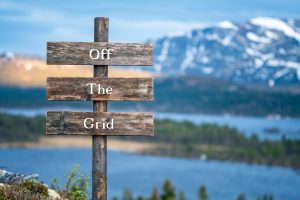Living off the grid is an increasingly popular lifestyle choice for those who want to be self-sufficient and independent. It involves disconnecting from public utilities and services, such as electricity, running water, sewer systems, etc., and relying solely on renewable energy sources like solar or wind power.
If you’ve decided it’s time to move to off-grid living, purchasing land is one of the first steps you’ll need to take. Here are some tips for making sure your purchase goes smoothly so you can start living life on your terms.
Research the Local Zoning laws and Building Codes
Before you purchase, familiarize yourself with the local regulations for off-grid living in your area. Know what structures are allowed on the property and restrictions that may limit your ability to install solar panels or wind turbines.
Check for Easements
An easement is a right an individual or entity holds to use someone else’s land. These can be tricky to navigate, so it’s important to know if any pre-existing easements will affect your plans for the property before closing on the sale.
Look into Tax Implications
Depending on where you live, owning land may have certain tax implications. Be sure to look into these before purchasing since some areas may require an additional tax on off-grid properties or have other regulations that could impact your ability to live your desired lifestyle.
Make Sure Property Boundaries are Clearly Marked
Before signing any documents, make sure all the boundary lines for your property are clear and unambiguous. This will help avoid future issues with neighbors encroaching upon your land or vice versa.
Consider Access
When evaluating a piece of land for off-grid living, take into account how easy it will be to access it by car or foot. You’ll need to factor in road conditions and terrain when selecting a property, as these can have a major impact on how you’ll be able to use it in the future.
Consider Renewable Energy Sources
Once you’ve purchased the land for off-grid living, setting up renewable energy sources is the next step. Solar energy is one of the most popular choices for powering an off-grid lifestyle, and it’s relatively easy to set up. However, other options, such as wind power, hydropower, and bioenergy, are feasible ways to generate sustainable energy.
No matter which renewable energy source you use for your off-grid life, proper installation ensures its long-term success and efficiency. Hiring an experienced professional installer or consulting an expert in renewable energy technologies can save you time, money, and hassle down the line when things go wrong or when upgrades are necessary.
Following these tips and talking with our experts at Merchant of Homes will ensure that your off-grid journey starts on the best footing possible. Contact us today to take the first step to live sustainably on your land.


